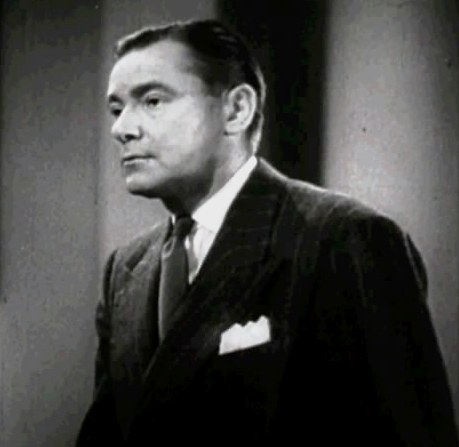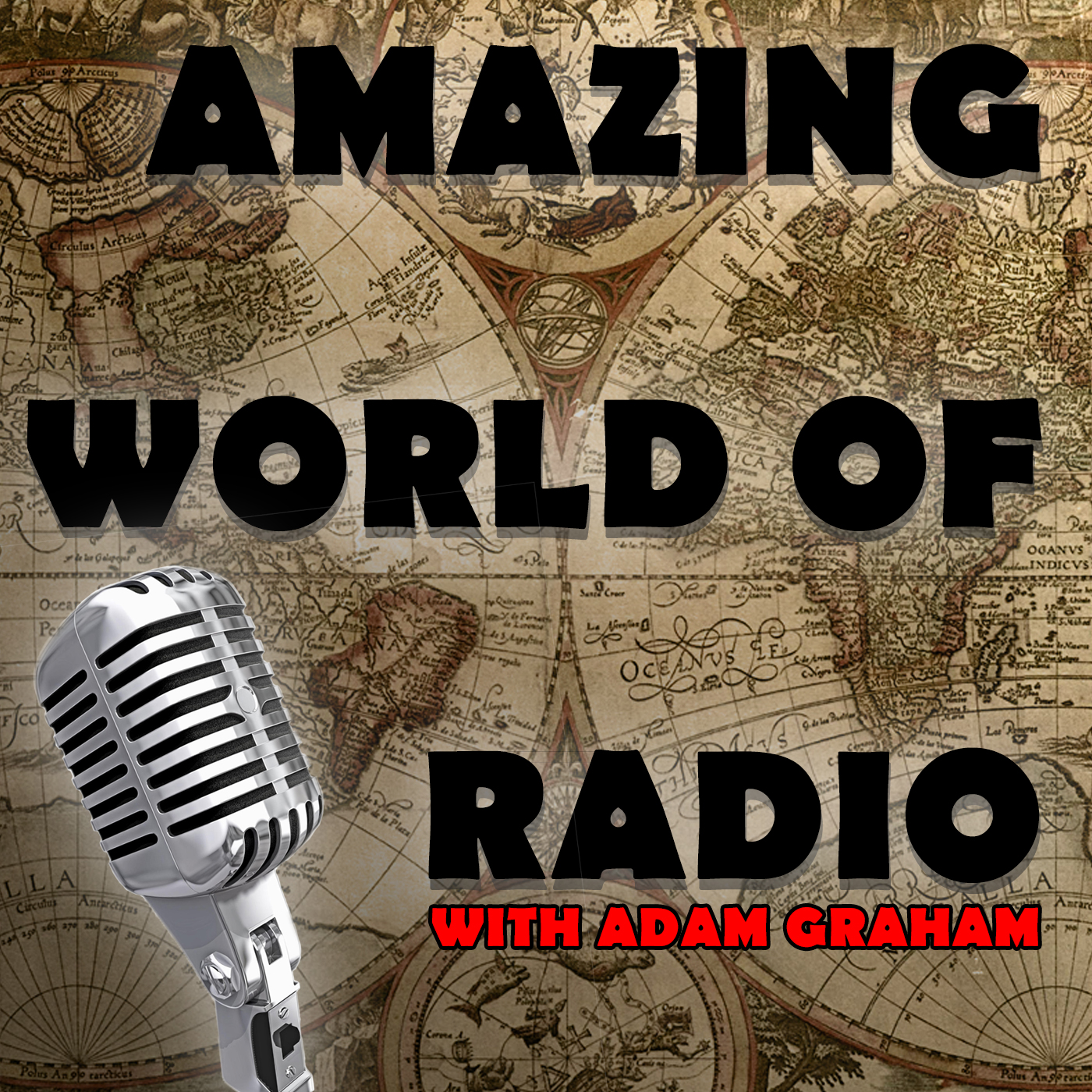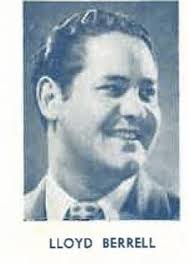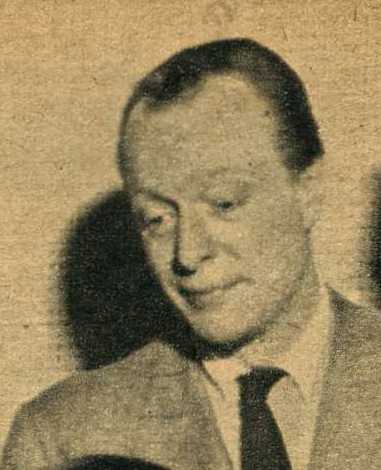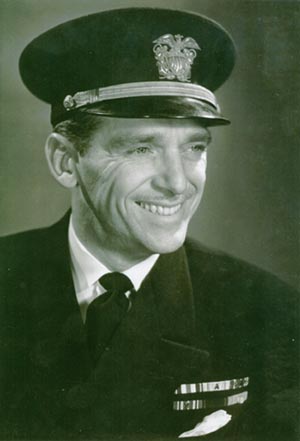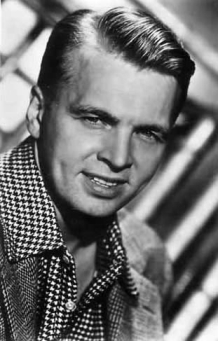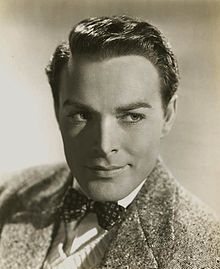Caroline Crompton, host of the Shedunnit podcast, was the guest on BBC Radio 4 Extra’s Podcast Radio Hour on an episode where the Great Detectives of Old Time Radio was recommended. She noted that many people didn’t think of America as having an audio drama tradition like the British do.
The British tradition of audio drama as embodied in BBC Radio productions is a storied history of prestigious productions. The works of great authors, both past and present are reflected in the adaptations. In addition, the BBC also produces original comedies and dramas. It’s known for great sitcoms like The Navy Lark as well as bringing radio adaptations of popular television programs including Yes, Minister, Dad’s Army, and Steptoe and Son as well as the original mystery series Paul Temple. These productions feature some of the greatest radio actors of their time. Legends like Derek Jacobi, John Hurt, and Julie McKenzie have all made their appearances in BBC Radio Four productions, as well as current stars like David Tennant, Martin Freeman, Benedict Cumberbatch, and Hayley Atwell.
In addition to BBC, there are also independent audio production companies like Big Finish which have put out a prodigious amount of high-quality audio dramas.
The American tradition is different. It’s a long, complicated story with many twists, turns, and aspects. While many British people don’t think Americans have a heritage of audio drama, there’s plenty of misunderstanding on this side of the pond, too. Some Americans don’t know about it. Others think the last day of the golden age of radio in the United States was the day the audio drama died, despite all the other countries in the world that never stopped making it. The idea America ever completely stopped putting out radio dramas is inaccurate, too.
So my next few articles will talk about that tradition. Note I’m not trying to tell an exhaustive history. Rather, our focus is going to be on the major events, programs, and milestones in American radio drama. We’ll start with the era known as the golden age of radio that effectively began in the late 1920s and carried through until 1962.
The Golden Age of Radio and It’s Milestone Programs:
Books stretching into the thousands of pages have been written on the history of the golden age of radio. My aim here is a relatively quick summary, so I’m going to limit my discussion to a few key programs and events.
In the late 1920s and early 1940s, America’s radio networks began to form. There was CBS, Mutual, and NBC Red and Blue Networks. The NBC Blue Network would later be sold off and become an Independent entity now named ABC.
The expansion of radio represented a gold rush opportunity for entertainers. Programs would appear across the four networks. In addition, several programs were sold as first-run syndications to Independent radio stations as well as network affiliates to air at times when network programming wasn’t playing.
The first programs to gain popularity were serialized programs. Cecil and Sally, Amos ‘n Andy, Lum and Abner, and Vic and Sade would become fixtures on American radio as serialized comedy. Regular soap operas like The Goldbergs, One Man’s Family, and Ma Perkins became daytime mainstays that outlasted many other programs.
Rudy Vallee’s Fleishman’s Yeast Hour began in 1929 became the first great musical variety program on radio. The series mixed music, comedy, slice of life interviews, short dramas, and comedy sketches. The show made stars of many guests, most notable ventriloquist Edgar Bergen and his dummy Charlie McCarthy. Jack Benny had his first broadcast in 1932 and eventually became radio’s most popular comedy program, often featuring parodies. Benny and fellow Comedian Fred Allen thrived on a long-running “feud” that enriched both of their careers. Not only did Benny succeed, but Dennis Day and Phil Harris starred in it. Another co-star, Eddie Anderson, became one of the most well-known performers of the time.
Lux Radio Theater came to the air in 1934. It began as a series based in New York that provided hour-long dramatizations of Broadway plays. The series moved to Hollywood in 1936 and began adapting movies to radio, often with members of the film cast reprising their original roles. The series became a massive hit and spawned several other movie adapting series, the longest lasting of which was the Screen Guild Theater.
Fibber McGee and Molly starring real-life husband and wife Jim and Marion Jordan hit the air in 1935 and would evolve into one of radio’s most beloved and successful sitcoms, spinning off two other series: The Great Gildersleeve and Beulah.
In January 1936, Gangbusters came to the air and became a sensation in the world of crime drama. It’s violent opening and it’s tales of notorious criminals (often told over multiple weeks) made it massively popular listening for years.
Orson Welles made his mark on radio. His career began with a 7-part adaptation of Les Misérables for CBS. Then, he became the uncredited voice of The Shadow. However, he’d make his most famous mark on radio when he took to the air with the Mercury Theater. The plays were evocatively told, often in experimental ways. The most noted of these is the “War of the Worlds” broadcast, which was staged as a newscast and led to a national panic. Even though Wells would have a prolific career and make one of the greatest films of all time in Citizen Kane, that radio play is his best-known work.
As War came to the Earth, radio also focused on its greatest writers. Arch Oboler could write great plays about the typical human condition. However, he was also well-known as the writer of the horror series Lights Out. Many of his wartime plays include elements of the imaginative or supernatural, such as a woman who finds Adolf Hitler suddenly a passenger in her car. Norman Corwin was radio’s poet laureate. He was capable of writing delightful surreal stories like “The Undecided Molecule” and “The Plot to Overthrow Christmas.” Yet at the same time, that poetic force could be turned on European fascists or used to solemnly commemorate the end of the war. These two writers were stand-out eloquent voices who told evocative stories that captured the feeling of the age in unforgettable ways.
In 1942,CBS launched a new anthology series called Suspense. Each episode was “well-calculated to keep you in suspense.” The genre of the episodes would vary. The stories could have elements of mystery, horror, the supernatural, adventure, and some could be considered Science Fiction. The series ran for twenty years and had numerous showrunners who had their own ideas of what a Suspense episode would like. The series became popular with the general public, and also with Hollywood actors. At the peak of the show’s success, Hollywood greats like Jimmy Stewart, Humphrey Bogart, or Lucille Ball were often the series guest stars. Often guest stars acted against their typical type. For example, Jim and Marion Jordan appeared outside their Fibber McGee and Molly guise in a serious role. The series produced its most famous episode when Agnes Moorhead provided the principal voice performance in the classic play, “Sorry, Wrong Number.” The episode was performed eight times on the series and adapted into a major motion picture.
After the War, the hard-boiled radio private eye began to proliferate. The hard-boiled private eyes tended to be involved in more violence than the traditional programs, both on the giving and receiving ends. Dick Powell’s Rogue’s Gallery was the first of the number and a key plot point involved him being knocked so senseless each week that he had a conversation with his alter ego. In addition, there was also a unique style of hard-boiled dialogue and narration that has endured as a staple of the genre. The most famous and iconic of the lot was The Adventures of Sam Spade starring Howard Duff. Hard-boiled private eyes proliferated all four networks and the trend didn’t begin to taper off until the mid-1950s.
Many American police officers bristled at their portrayals in Golden Age radio in detective dramas: from comedic characters with painfully stereotyped accents to clueless simpletons who needed the help of brilliant detectives to figure out how to perform even rudimentary functions of crime detection to brutes who smacked around detective heroes and forced them to solve the crime for them on pains of being sent to the gas chamber and executed for a crime they didn’t commit. The portrayal of police departments and their operations were so unrealistic, as far as real police detectives were concerned, the stories might as well be set in another universe.
A police sergeant who was a technical adviser on the film He Walked by Night discovered Jack Webb, a supporting actor in the film, had played radio private eyes and griped at length. He asked why a radio series wasn’t made portraying how police really did their jobs. The idea came back to Webb in 1949 when his radio series was set to go on hiatus and he needed to find a way to support himself and his pregnant wife during the summer. He pitched NBC on a series of realistic police dramas, and it was greenlit as a summer replacement. Dragnet became one of radio’s iconic hit programs. Webb was not only the show’s star but it’s director and was dedicated to making it as realistic as possible. He used unheard-of sound effects men to create a sound and feel for Dragnet that was years ahead of its time. Just as the success of Sam Spade had led networks to rush out their own private detective programs, the success of Dragnet had every other network making realistic police dramas and served as a major evolution of crime dramas in the United States.
As the 1950s began, American radio was a massive force in American culture. It featured numerous dramatic anthologies that adapted movies, great works of fiction, as well as those told original tales. It boasted America’s finest comics and numerous situation comedies. It also featured a great deal of culturally significant programs about history and literature. It features programs made for men, women, and children. As America entered the 1950s, radio was king. Yet, radio was living on borrowed time and it’s reign would come to an end early in the next decade.
